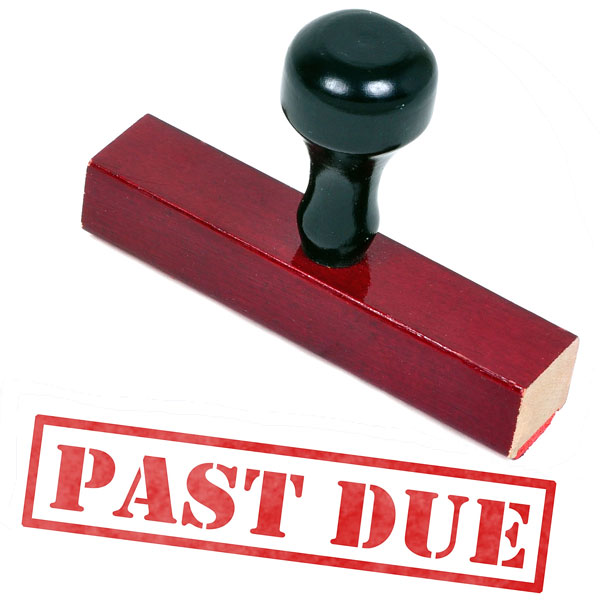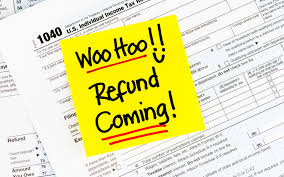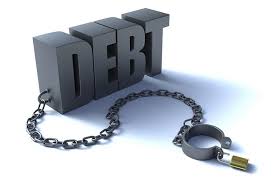It’s never pleasant getting phone calls for past due bills. They seem to call from bright and early to late in the evening, several times a day. Do you hit ignore when you see that toll free number? This article will talk about what collection agencies can and cannot do and some strategies to deal with it.
Collection agencies are third parties, meaning you don’t actually owe them, however they are collecting on behalf of another company. Sometimes if the debt is extremely old (like 4 or 5 years) the agency may have actually bought the debt and we will talk about that later, but let’s assume the debt we are talking about is just being collected by an agency right now. So for example you owe Sprint for a broken contract, phone and outstanding balance. Let’s say the total is $1,000 and after a month or two of Sprint calling and sending notices, they sent you to Call Night&Day Collection Agency. According to the Fair Debt Practices Act (www.ftc.gov) agencies can call as early as 8 am, and as late as 9 pm in your time zone, even on Sundays. In addition, they usually mail notices, although calls are the best way to reach customers.
There are many rules in place to protect consumers from unfair practices and a few of the ones to know are as follows. They must identify who they are, why they are calling and that the phone call is an attempt to collect a debt. They cannot use deceptive or harassing tactics, try to coerce or threaten in any way. They cannot say they will bring legal action if they do not have the power to do so (must be an attorney collection firm). Here is a full list of the collection rules that agencies must follow: https://www.ftc.gov/enforcement/rules/rulemaking-regulatory-reform-proceedings/fair-debt-collection-practices-act-text
Now let’s talk about your rights and what you can do if you find yourself in a conversation with a collector. First of all you have the right to request proof of a debt. They must send a copy of the application or original statement- something that verifies the debt. You may ask for this even if you know you owe it. It is a great tactic to get them off the phone in fact. Secondly you have the right to not receive phone calls. If they call your place of employment you can tell them right there to not call work any longer, and that you are not allowed to talk at work. To stop calls at home or on your cell, simply write a letter and mail it to them, and state that according to the Fair Debt Practices Act you are requesting they stop all phone calls to any number they have for you.Keep a copy for your records and if they do call after that tell them you will report them to the FTC. Now be aware if they cannot call you, sometimes they do transfer the debt to an attorney and you could get sued, especially if the debt is large.
Maybe you just want to pay them and want some peace from all the calls. You can tell them you will be making a monthly payment however do not wish to receive calls and if they continue you will write a cease and desist letter. Another option is to seek out a non-profit Debt Management Program and pay the debt that way. That puts a buffer between you and the agency, and generally keeps them from contacting you. Find a non-profit agency in your area by calling the NFCC at 800-388-2227. Also know that each state has a statute of limitations and in most states debts are usually only collectible for 6 years or less. To find out how long debts are valid in your state here is a complete list. https://www.thebalance.com/state-by-state-list-of-statute-of-limitations-on-debt-960881
Collections may also be settled for less than what you owe. I recommend offering 1/3 of what is owed because they usually counter offer and you want to start low. If you can settle a debt for about half, it is a good offer, but use your judgment. If they won’t budge and you can afford the offer, it will avoid further collection attempts and a lawsuit. If you can avoid it do not give a collection agency direct access to your bank account. I prefer you mail a money order so they do not know who you bank with. They share information with other collection agencies (called skip tracing) and also if they take out more than agreed it is difficult to get refunded. When negotiating a settlement ask for a settlement agreement letter in writing either by email or regular mail and keep proof of payment. You want to make sure your credit report gets updated and having proof is the best way if you have to dispute it. I have know people that didn’t keep proof and had to pay a debt AGAIN to resolve it so please keep good records. Another tip is not only can you settle the debt but you can ask the amount be broken into 2 or 3 payments if needed. Just make sure to keep up the agreement.It is good to know that any amount in which they forgive $600 or more of the debt, they can issue a 1099-c, which is something you must claim on your taxes. So if you settle a $2,000 debt for $1,000, that $1,000 they forgave becomes taxable income, which is approximately $200 if you are in a 20% tax bracket.
So here is a summary of what to do if you are contacted by a collection agency (and you actually answer the phone)
1. Ask for proof of the debt to be mailed to you. If the debt is past the statute of limitations, let them know it is no longer collectible in your state.
2. If they are calling you at work, tell them to stop calling you at work or you will contact the FTC
3. If you do not want to be called at any number, type of a cease and desist letter and mail it to them. This letter simply tells them to stop all phone calls and that you have that right according to the Fair Debt Practices Act. (keep a copy for your records)
4. If you wish to pay the debt, either pay, settle (offer them a lump sum of less than what’s owed) or send a monthly payment. I recommend mailing money orders so they do not know where you bank or using a non-profit Debt Management Program which provides a buffer between you and the collection agency. Find a Debt Management Program by calling 800-388-2227.
If you are being stressed out by collection agencies and need help, reach out by finding a non-profit agency in your area or contact me for some assistance.
Get a FREE Budget form that does the math for you! Compare income and expenses easily, which is the first place to start towards financial freedom. Get this free tool here
Lots of love,
Beth
Find me online:





